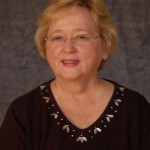
School Isn’t Fair, by Patricia Baehr
Four-year-old Edward has a difficult day at school. He wants a drum at music time but all he gets is one maraca. He wants to play with his friends but Donny tells him he is too little. At the end of the day, Edward’s teacher says that Edward is the best at zipping. Edward helps Donny zip his jacket and Donny says, “Thanks.”
Children have many ideas about what is fair and not fair. It is helpful to get their ideas about fairness and ways to make things fair.
When I Feel Scared, by Cornelia Maude Spelman
Everyone feels scared whether you are a child or a grown-up. We all know the scared feeling. We want to acknowledge children’s feelings and help them manage the feeling. Sometimes scared feelings keep us safe and other times we have to manage scared feelings with the help of our parents – like when we’re getting a shot or taking medicine.
Talking about how we feel helps us manage the feeling in bearable bits. It is important for children to know that they should talk to a grown-up when they feel frightened or worried.
Guess How Much I Love You, by Sam McBratney
Little Nutbrown Hare is getting ready for bed and he wants to tell Big Nutbrown Hare how much he loves him. Little Nutbrown Hare asks Big Nutbrown Hare to guess how much. Big Nutbrown Hare isn’t sure he can guess. Little Nutbrown Hare spreads his arms out wide and says this is how much I love you. Big Nutbrown Hare has much longer arms and he stretches his arms out and says, “I love you this much.”
Often, 4- and 5-year-old children like having the most or the biggest of something, but Little NutBrown Hare can’t outdo the love that Big Nutbrown Hare shows him.
How to pick a great children’s book
The selection of books is as important as the selection of toys. Young children have incomplete information for understanding the world around them, which results in what we often refer to as “magical thinking”: explanations for things that don’t make sense to adults. Magical thinking can make it difficult to know what’s going on in a child’s mind, and may lead to unexpected reactions of fear or stress.
Here are some thoughts about selecting appropriate books:
- Look for pictures that may be scary to a young child. Is there a fire? Do the animals have long sharp teeth? Are there depictions of things that you know are troubling to your child specifically?

Acierno
- Is the vocabulary suitable? Are the words scary, like yelping, snarling and hissing sounds. Are there references to violence or antisocial behavior – fighting or throwing things?
- Is it developmentally appropriate? Books for young children should be uncluttered and simple with a clear presentation of the important concepts. The first words that children learn are nouns – the objects of everyday life.
For more insights about selecting books and reading with young children, look at our original list of 100 great children’s books.
Book links go to Amazon and generate a small donation to Hanna Perkins Center when used to make a purchase.
Other blog posts that might be of interest:
MAR
2023





About the Author:
Early Childhood Educator Noreen Acierno teaches preschool at Hanna Perkins School, where she has worked since 1999. She is passionate about children's books.